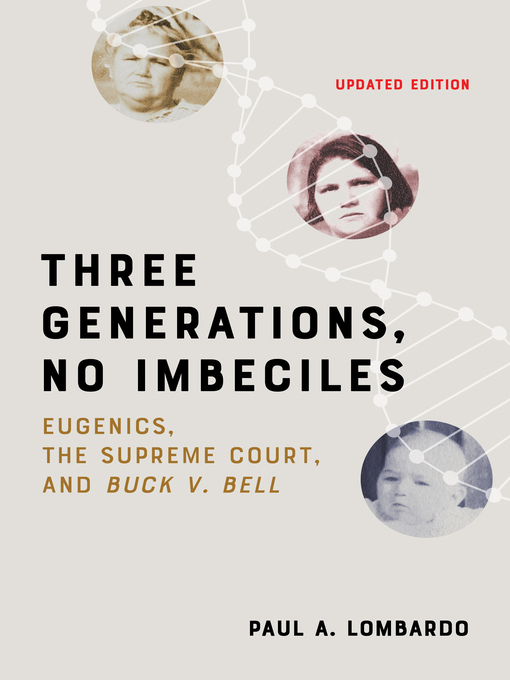This updated edition includes a new afterword that identifies the role the Buck story plays in the Supreme Court's review of emerging state laws that seek to limit access to abortion.
"Three generations of imbeciles are enough." Few lines from U.S. Supreme Court opinions are as memorable as this declaration by Justice Oliver Wendell Holmes Jr. in the landmark 1927 case Buck v. Bell. The ruling allowed states to forcibly sterilize residents in order to prevent "feebleminded and socially inadequate" people from having children. It is the only time the Supreme Court endorsed surgery as a tool of government policy. Though Buck set the stage for more than sixty thousand involuntary sterilizations in the United States and was cited at the Nuremberg trials in defense of Nazi sterilization experiments, it has never been overturned.
It has been more than a decade since Paul A. Lombardo's classic Three Generations, No Imbeciles first exposed the Buck case's fraudulent roots. During that time, several of the remaining twentieth-century eugenic sterilization statutes have finally been repealed, and reparations to sterilization survivors have been paid in two states. Discussion of the Buck case has once again engendered controversy in the courts. The Wisconsin Supreme Court invoked Buck most recently in a debate over the power of the state to enact restrictions on citizens and businesses during the COVID-19 crisis, and the US Supreme Court cited Three Generations, No Imbeciles in arguments over the newest state laws seeking to limit access to abortion.
This updated edition collects and analyzes information related to events and trends discussed in the earlier volume and includes a completely new afterword, "Looking Back at Buck," that explains how the case remains a key feature of public discourse about disability, government power, and reproductive rights. It also presents restored copies of the letters of Carrie Buck and points readers to an online archive of legal documents, images, and other material relevant to the case. The book remains a key resource for law school faculties, legal and medical historians, and anyone with an interest in the history of reproduction in the United States.
"Startling."—Reason
"Compelling and well-researched . . . Three Generations, No Imbeciles gives Carrie Buck's long-untold story the attention it deserves."—Harvard Law Review
"Three Generations provides valuable, new, and timely revelations for students and professional scholars across many disciplines."—Disability Studies Quarterly
"Meticulously detailed and researched history . . . this book is enjoyable, thought provoking, and troubling in equal measure. I highly recommend it."—Psychiatric Services

